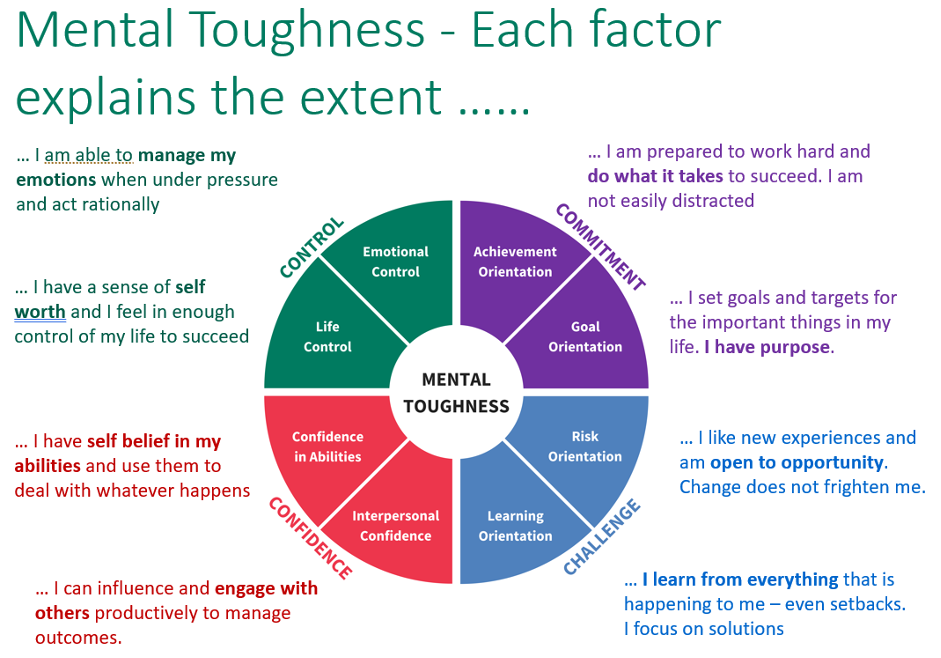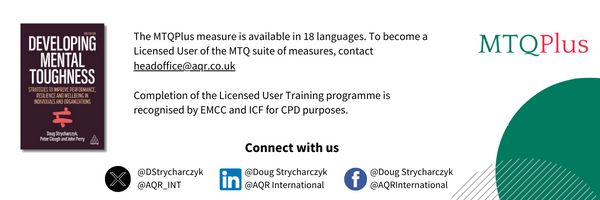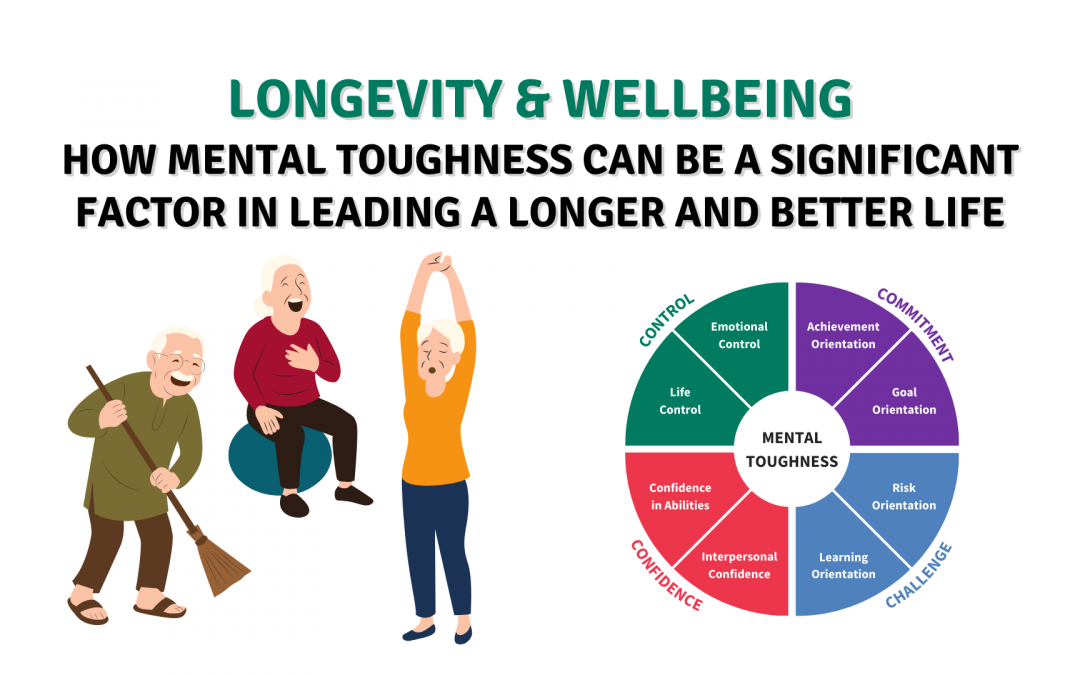How mental toughness can be a significant factor in leading a longer and better life.
Why is longevity rising on the agenda?
The average age of a male born in my birth year, 1949, is 65.3 years – the same in North America. For a male born this year, 2025, life expectancy has grown to approximately 79 years.
It is not the only consideration. It is one thing to live a long life; it is quite another to enjoy the quality of life in those added years. There can be many unwanted conditions that are often associated with age, dementia often appearing at the top of the list.
It is an increasingly vital issue for the individual, for family, for society and for the economics of society.
Indeed, many of our partners, like Iridia Medical in Canada, are responding to the demand and exploring the mental toughness concept and measure as one component of a whole life strategy to live longer and live better.
What influences Longevity?
There are a number of factors that influence longevity and quality of life beyond lifestyle. Many of these can be outside of the control of individuals.
This includes genetics. We can inherit diseases, ailments, and conditions, although advances in medical science might address these in time. It includes the environment and its stress factors. We cannot always change the setting, but we can understand how to deal better with stressors. These can feel, to some degree, outside of our control.
Can we influence longevity?
There is a group of factors that come under the umbrella of lifestyle, and they are all, to a degree, within our control. We can understand how to adopt a healthier lifestyle and understand what it is that is within us that stops us from enjoying a healthier life. If we understood it well enough, we could achieve the goal of a long and active life.
Prevention is always better than the cure. This is where mental toughness matters.
5 factors consistently appear in most analyses of a healthy lifestyle.
- A balanced and nutritious Diet, as well as not overeating.
- Minimising or eliminating consumption of Drugs, Tobacco, and Alcohol
- Being Physically Active
- Maintaining Mental Activity
- Social Activity
The common theme underpinning each is that it describes a habit. Together, the evidence is very strong that they contribute to maintaining a healthy body and a healthy mind. A habit is a regular, often subconscious, routine of behaviour that becomes ingrained through repetition. Habits can be beneficial or detrimental.
Smoking and drinking, eating fatty processed foods, and driving everywhere when you can walk are all examples of unhealthy habits.
To develop better habits and behaviours, to change how we act, we need to understand why we act the way we do. A major influence on behaviour is the way our mind works. That is what the mental toughness concept addresses.
Why does our mental toughness matter for longevity?
Mental Toughness is an aspect of our personality, hidden from view because it is in your head, that describes your mental response to stressors, pressure, adversity, challenge, and opportunity.
Research reveals that it consists of 8 independent factors, around 4 components, each contributing to your overall level of mental toughness.

Each factor will influence your ability to develop new behaviours and a more beneficial habit. It will also influence which development approach will work best for you.
A low level of Life Control might mean that you are not ready to make a change. Frustration can cause an Emotional reaction that you have difficulty controlling.
A low level of Goal Orientation might mean that your sense of purpose is not strong enough. You might not be prepared to make the effort and deal with the discomfort of Achieving the change.
If you are comfortable with what you are doing now, even if it’s unhealthy, you might not be ready to see the opportunity for a better life and take a Risk to make a change. Change always involves setbacks. You might not be ready to Learn from each setback to be able to do it better.
You might doubt your Ability to change your diet. What is protein anyway? Moreover, little is ever achieved by someone on their own. Being unprepared to Engage with others for support, guidance, etc, makes the transition journey more challenging.
The point here is that knowing in advance what can make you struggle allows you to identify how to deal with it. The solution often lies in those same factors.
For instance, you may not be ready for change, doubting yourself as a person who can give up smoking. You might, however, have a high level of achievement orientation. You can express your challenge in terms of goals, targets, and milestones and achieve them through that lens.
Or a high level of interpersonal confidence can mean you seek help and support, and let everyone know what you are trying to do.
Self-awareness leads to understanding, which leads to solutions that are customised to you. To new and better habits. Your mental toughness matters. It’s a major factor in prevention.
Living longer and enjoying a better quality of life, to a large and important extent, rests with you.



